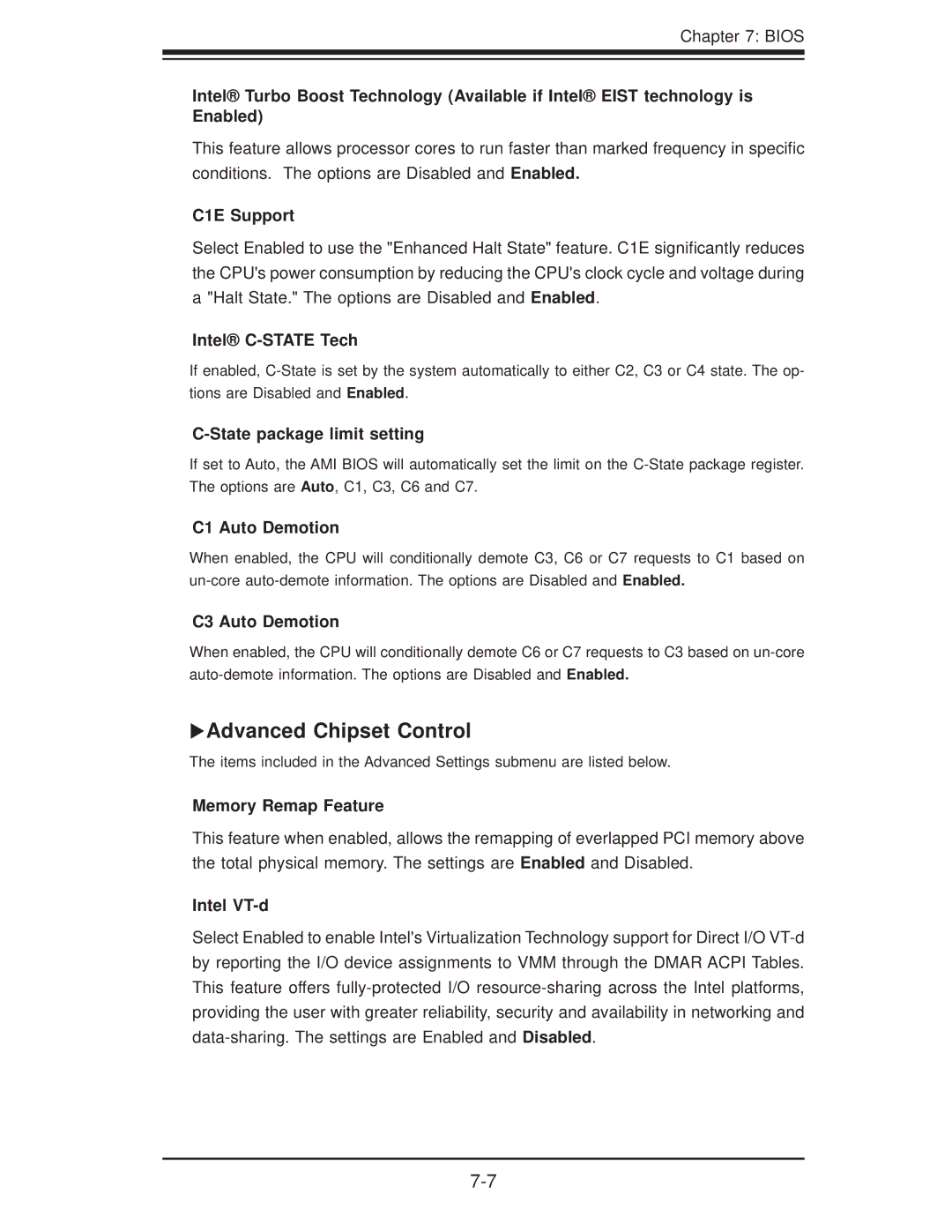
Chapter 7: BIOS
Intel® Turbo Boost Technology (Available if Intel® EIST technology is Enabled)
This feature allows processor cores to run faster than marked frequency in specific conditions. The options are Disabled and Enabled.
C1E Support
Select Enabled to use the "Enhanced Halt State" feature. C1E significantly reduces the CPU's power consumption by reducing the CPU's clock cycle and voltage during a "Halt State." The options are Disabled and Enabled.
Intel® C-STATE Tech
If enabled,
C-State package limit setting
If set to Auto, the AMI BIOS will automatically set the limit on the
C1 Auto Demotion
When enabled, the CPU will conditionally demote C3, C6 or C7 requests to C1 based on
C3 Auto Demotion
When enabled, the CPU will conditionally demote C6 or C7 requests to C3 based on
XAdvanced Chipset Control
The items included in the Advanced Settings submenu are listed below.
Memory Remap Feature
This feature when enabled, allows the remapping of everlapped PCI memory above the total physical memory. The settings are Enabled and Disabled.
Intel VT-d
Select Enabled to enable Intel's Virtualization Technology support for Direct I/O
